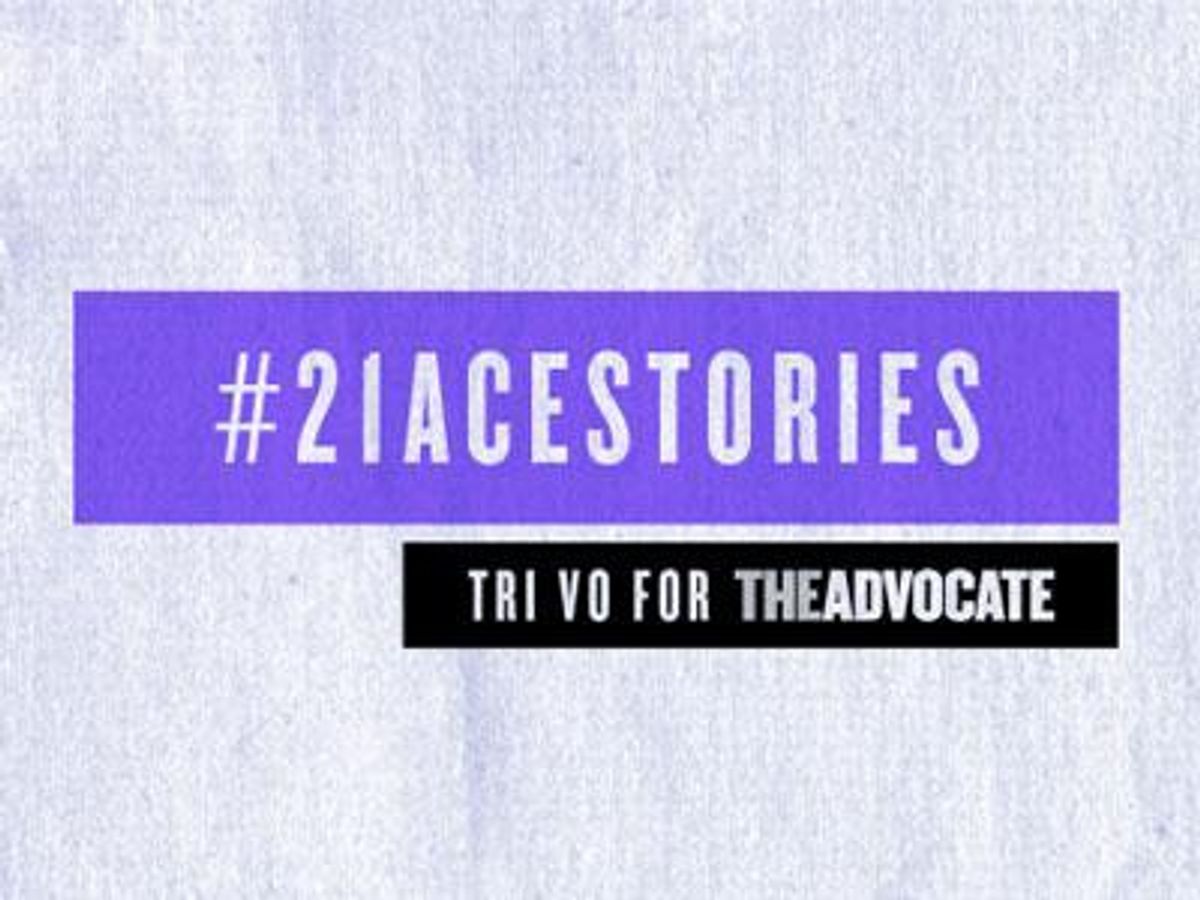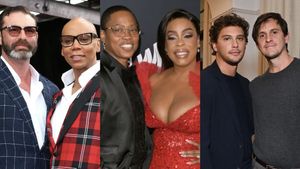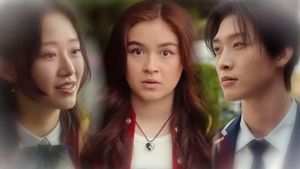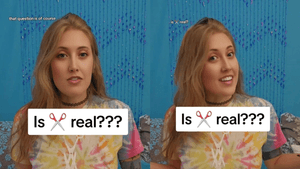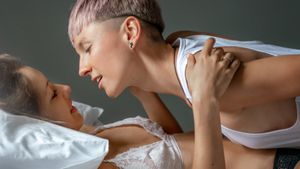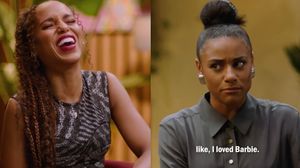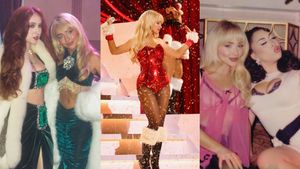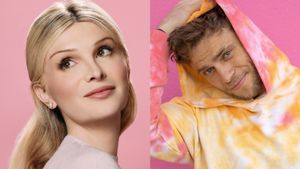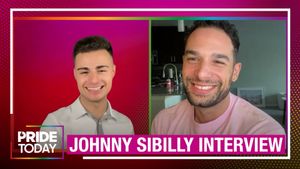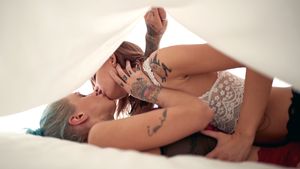Many misattribute the A in LGBTQIA to allies when it really stands for asexuals. This erasure of asexual identities disenfranchises the asexual community from the LGBT community, perhaps more so than any other marginalized community.
There are few openly asexual celebrities and even less asexual representation in media. This leaves members of this minority isolated in their journeys. It also leads to many misconceptions about asexuals. We wanted to clear up some of those misconceptions both for ourselves and for The Advocate's readers.
The Advocate asked the same four questions to 21 asexual individuals from all around North America. The diversity in the group reflects the assortment of experiences asexuals live. Some of the asexual participants are in relationships -- monogamous, nonmonogramous, and polyamorous -- while others are living single lives. Some participate in certain forms of sexual activity, and others are sex-repulsed (a term among asexuals meaning they do not have sex). Some masturbate and are even performers in pornography while others don't engage in any type of sexual activity.
In this first installment, asexuals share the biggest misconceptions about their sexuality. The goal was to allow asexual people to share their journey on their own terms by giving them a platform. We hope this series will begin a much-needed conversation.
Alyssa, asexual, 22, Rhode Island: It's hard to say what the biggest misconception is, but one I deal with a decent bit is that asexuality isn't real because we're "all just autistic." Um. No. First off, since autism isn't something you can separate from the person, even if our autism is related to our asexuality (pretty sure mine is) we're still asexual. Second, I'm fairly sure most asexual folks aren't autistic anyway.
Stacy, panromantic ace, 29, Texas: I don't know if this one is the biggest, but I would say it's the most dangerous -- there is a mind-set that some people have when they meet or hear about someone who is asexual, where the knee-jerk reaction is "Oh, they just need to have sex. They just don't understand." To this I say a resounding no. There is also a subset of people who think it's their place to see to it that this asexual person gets the sexual experience everyone deems is necessary. This is where the term "corrective rape" is used and in no way corrects anything but instead makes sure that the asexual in question not only is scarred for life but also possibly becomes sex-repulsed. Not all aces have an aversion to sex. There are some who find it enjoyable in a way and engage in sexual acts as they so choose, but that's not everyone. And no one should be forced to have any sex they do not fully want to have, no matter their sexual orientation.
Lucian, queer gray ace, 24, New Jersey: That we are never sexual. That we cannot be sexual. I am a sex worker. Sexuality is part of my job. I make porn, mostly solo, but it is still sexual. There is this idea that being ace means you never masturbate, sex grosses you out, you never want to look sexy, and so forth. People think that ace people don't even masturbate, that the majority of us exist in this weird state separate from sexuality entirely. While that is true for some people, it is not true for all. For me, I have no interest in sex for the most part. I'd rather play video games. I look at porn, I create porn, but for me sexuality is a mostly solo or fictional thing. Does that mean I never have sex or want it? Not at all. People put a blanket idea over ace people as opposed to treating us like individuals.
Jack, asexual, 20, New York: I'd say the belief that asexuals have some physiological problem is a misconception. All of my "hardware" works, but I don't have any sexual drive. A more frustrating one is that asexuals are just pretending because they can't get laid. I've had people tell me that I'm not being genuine, that I'm just making an excuse because I'm a virgin. But I don't even "service" myself, so it's not like I'm looking for sexual satisfaction to begin with.
Marcia, queer asexual, 29, Missouri: If I meet the right person, I'll want to have sex. If I have enough sex, I'll like it. Asexuals are also aromantics.
Samantha, asexual, 28, Michigan: At this point, it's hard to say because there's only a handful of people who know I'm asexual. The three things that come to mind are (1) we're incapable of sex; (2) we're prudes or judgmental; (3) there's no such thing as asexuality.
Jason, asexual, 41, Pennsylvania: I think the fact that we exist at all leads to misconception. We are not celibate by choice. We are not broken and do not need to be fixed. We are not all survivors of sexual abuse. We are unique and very special human beings who feel deeply about others and are the same as other people except for one key difference -- we do not desire to have sex. That does not mean we do not have sex. The vast majority of us are quite capable of performing sexually, thank you. We just do not desire it.
Celestine, asexual panromantic, 34, Louisiana: That we're confused. That we can be -- and want to be -- fixed. That we're all virgins who just don't know what we're missing. That we've all been sexually abused, and that's the only reason we're not interested in sex, and if we could just heal, we'd be interested in sex like "normal" people. In short, that asexuality, asexual people, don't exist.
Kate, demi-panromantic asexual, 27, South Carolina: That all asexuals are "innocents" and think sex is gross. There's a wide spectrum of asexuals; we're really diverse. There are asexuals with a sex drive (who don't experience attraction), there are asexuals with low or no libido, there are asexuals who are into kink, and there are asexuals who don't feel the need for sex, and some who are repulsed by it. But each and every one of us has value and deserve support.
Lydia, queer panromantic asexual, 21, Washington, D.C.: That asexuality means you automatically are incapable of loving romantically in any way. Obviously some asexual people are also aromantic, but some of us are also hetero or gay or lesbian or bi or pan or some other kind of queer.
Ashley, asexual, 19, Texas: The most general problem is that all allosexual people, queer or straight, will assume that there are behaviors that are exclusively allosexual and ones that are exclusively asexual. They will isolate us, distance us from them, and put us in a box. For example, allosexuals assume that asexuals are the only ones who don't have sex. While this is true for most asexuals, this is not the definition of asexuality. A no-sex lifestyle defines those with low or not-existent libidos who may not be asexual. So it's not an asexual trait.
Elizabeth, asexual heteroromantic, 19, South Carolina: That it is simply sexual repression caused by sexual abuse or that it is a sex drive problem that needs fixing. People think that being asexual is unnatural for humans and therefore must have been caused by someone's upbringing or a medical problem. Everything in our culture is so focused on sex that people who have little to no interest in sex look like aliens or robots.Even asexuals, including myself, have had this misconception before they learned that asexuality is a normal sexual identity. Throughout my teen years I was constantly looking for something in my past that could have made me broken and messed up, but I never found anything. Humans are viewed as inherently sexual beings, so of course asexuals are thought to be freaks of nature. But many asexuals have a sex drive and masturbate, so we do experience a form of sexuality. We just don't experience sexual attraction, and like all other sexual orientations, this is only the result of our birth.
Brittney, asexual biromantic, 21, Washington: The biggest misconception about asexuality is that it's a "made-up" sexuality. Asexuals are oftentimes told they're confused, going through a phase, suffering from a past trauma, or that they haven't met the right person yet. It's an understandable misconception, seeing how it's estimated 1 percent of the world's population is asexual, which means the other 99 percent is incapable of understanding what it's like to live without that biological urge for sex. On that note, asexuality and celibacy are two different things; just because you choose not to have sex doesn't mean you know what it's like not to have the desire at all. One is a choice, the other is biological.
Rae, asexual, 26, Maryland: That it's not real or just a phase. My family all thought I was a lesbian because I didn't date as a teen. I tried telling one of my brothers I was asexual, and he said I was full of it. In hindsight, he was really hoping I'd come out of the lesbian closet first and pave the way for his emergence from the gay closet. Asexual didn't even factor into his reality, and it wouldn't really make his coming-out any easier.
AJ, asexual heteroromantic, 30, Ohio: I keep running into two big misconceptions, and I'm not quite sure which one is most common. The first is that asexuality's a matter of having a low sex drive. Asexuality has no more to do with one's libido than any other sexual orientation. They're all about who you're sexually attracted to. In asexuality's case, the answer is "no one."
The second misconception is that there must be something wrong with us or that we just haven't met the right person yet. I find this especially rude when it comes from someone inside the queer community. It's no more acceptable to say these things to an asexual person than it would be for me to tell a gay man that he needs to go to conversion therapy or simply hasn't met the right woman yet.
Meg, asexual, homograyromantic, 32, Canada: I think the biggest misconception about asexuality is that we can't have relationships. In fact, asexuals can have healthy relationships, even with sexual people. Some asexual people have sexual relations with their partners. An asexual can have just a strong relationship with another person as a typical sexual person can.
Jessica, asexual, 27, Florida: I find that the biggest misconception about asexuality from those who do not understand it is that it's all in the mind of the person who defines themselves as asexual and is maybe just confused about their true sexual nature. I find this extremely frustrating at times, and trying to explain mostly just gains me strange glances, judgment, or confusion. The few persons I have spoken to about it tend to think that asexuality means wanting to be single, or that asexuality makes a person selfish. I have personally had this conversation with my mother, who, although she doesn't completely understand it, accepts my definition. I have found that, through various conversations with separate individuals, that asexuality is sometimes still considered a "not true" or "temporary" sexuality. Many who I have had these conversations with think that anyone who identifies themselves as asexual will eventually identify themselves as either gay, straight, or bisexual.
Claudie, asexual, 26, Canada: People think it means a lack of sex drive and that no asexual ever gets horny. This leads to a lot of really intrusive questions about one's sexual activities -- the kind you'd never ask anyone else. There's a lot of misconceptions surrounding attraction versus drive.
Chloe, asexual, 17, Ohio: The biggest misconception about being asexual is that we are broken in some way. We are not damaged or any less human. We don't hate ourselves; this is not any sort of punishment. Being asexual isn't a bad thing; it's a wonderful feeling knowing you are complete on your own. We don't reproduce on our own either.
Jamie, lesbian gray asexual, 20, New York: People often confuse arousal with attraction. Asexual people have the same amount of nerves as sexual people do! We are able to get reach an orgasm, but that does not mean we feel the need to. Some people on the ace spectrum enjoy sex; they just don't feel the drive or necessarily the need for it.
Jackson, multigender trans ace, 28, Nevada:
The biggest misconception that I continually encounter is that I must have been sexually abused at some point in my life. This particular misconception deeply rankles me because I think it delegitimizes and further disenfranchises people who have been on the receiving end of any kind of sexual abuse from anyone. As humans, we are always experiencing things, and unfortunately not all of them are pleasant. Identifying as asexual, being sexually abused, having red hair, being left-handed -- these are all things that any given person may have as part of our lives but they are all singular things that add together to equal an entire person, not singular things that add together to define a person.
